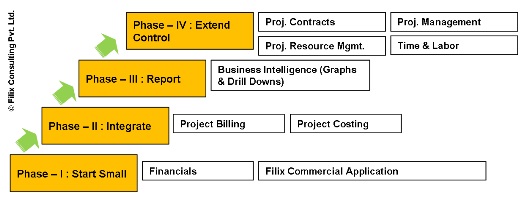The Real Estate Sector in India has been associated with various construction project
types which may be best classified by the use for which they are designed. Therefore
these companies are associated with construction of Residential Housing, Commercial
Shopping Malls / Office Spaces, Hotels, Special Economic Zones, IT and Bio-Tech
Parks. Each of the "products" that are delivered as part of these are attempted
to be unique by the builders, not only within their own product families but also
across competitor firms. Therefore one can see "Theme" based development, "Green"
projects, "Low-Cost" housing solutions etc. with some eye-catching and innovative
architectural designs still others can be differentiated by the scale of the projects
and thus the focus on "Integrated Townships".
Avenue for exponential growth:
According to the report of the Technical Group on Estimation of Housing Shortage,
an estimated shortage of 26.53 million houses during the Eleventh Five Year Plan
(2007-12) provides a big investment opportunity.
According to a report ‘Emerging trends in Real Estate in Asia Pacific 2011', released
by PricewaterhouseCoopers (PwC) and Urban Land Institute (ULI), India is the most
viable investment destination in real estate. The report, which provides an outlook
on Asia-Pacific real estate investment and development trends, points out that India,
in particular Mumbai and Delhi, are good real estate investment options for 2011.
Further, real estate companies are coming up with various residential and commercial
projects to fulfill the demand for residential and office properties in Tier-II
and Tier-III cities.
Real estate plays a crucial role in the Indian economy. It is slated to grow at
30% over the next decade. The Indian real estate market size is expected to touch
$180 billion by 2020. The housing sector alone contributes to 5-6% of the country’s
GDP. Retail, hospitality and commercial real estate are also growing significantly,
providing the much-needed infrastructure for India’s growing needs.
According to a study by ICRA, the construction industry ranks 3rd among the 14 major
sectors in terms of direct, indirect and induced effects in all sectors of the economy.
A unit increase in construction expenditure generates five times the income, having
a multiplier effect across the board. With backward and forward linkages to over
250 ancillary industries, the positive effects of real estate growth spread far
and wide. Truly, real estate is a growth engine for India’s economy.
Role of ERP in Real Estate Industry:
Information technology and internet has revolutionized the way real estate business
is done.
With the use of an ERP Solution, the sales workforce of a Real estate company can
have on line access to the property database with crucial information like property
booking status, customer payment status etc. With the power of real time data at
hand, they are able to reach out to a broader audience including prospective buyers,
property owners, and agents spread across different regions. By using the Online
booking engine, prospective buyers can browse through details of properties and
available payment options, select the desired property and book it online by using
an integrated secure payment gateway that ensures safety of online transactions.
Applications based on a CMS (Content Management System) can be integrated with the
solution making real estate companies to update and publish details of properties
easily.
Filix recommends a staged implementation of ERP for the Real Estate sector in India
rather than a big-bang approach. This would help them to get the basic operating
procedures and data in line with ERP requirements and vice-versa. Then on the ERP
footprint can be increased to take the larger benefits and MIS as per the business
needs. Whatever way you would like to implement, Filix services are available for
both phased and big-bang approaches for implementation.

For its clients in the Real Estate sector, Filix recommends implementation of Oracle
Customer Relationship Management to provide the required customer interface. The
relevant Oracle E-Business Suite Release 12 modules namely, Oracle Financials, Oracle
Property Manager, Oracle Purchasing and Oracle Inventory are needed to handle business
operations and in addition Filix Commercial Application is deployed to cater to
the client specific property management needs. Oracle Projects Costing and Oracle
Financial Analytics come in handy in providing real-time integrated information
on project cost and performance.
On the whole, the package mentioned above enables the client a better management
of their back-office support and improvement in operational efficiency.